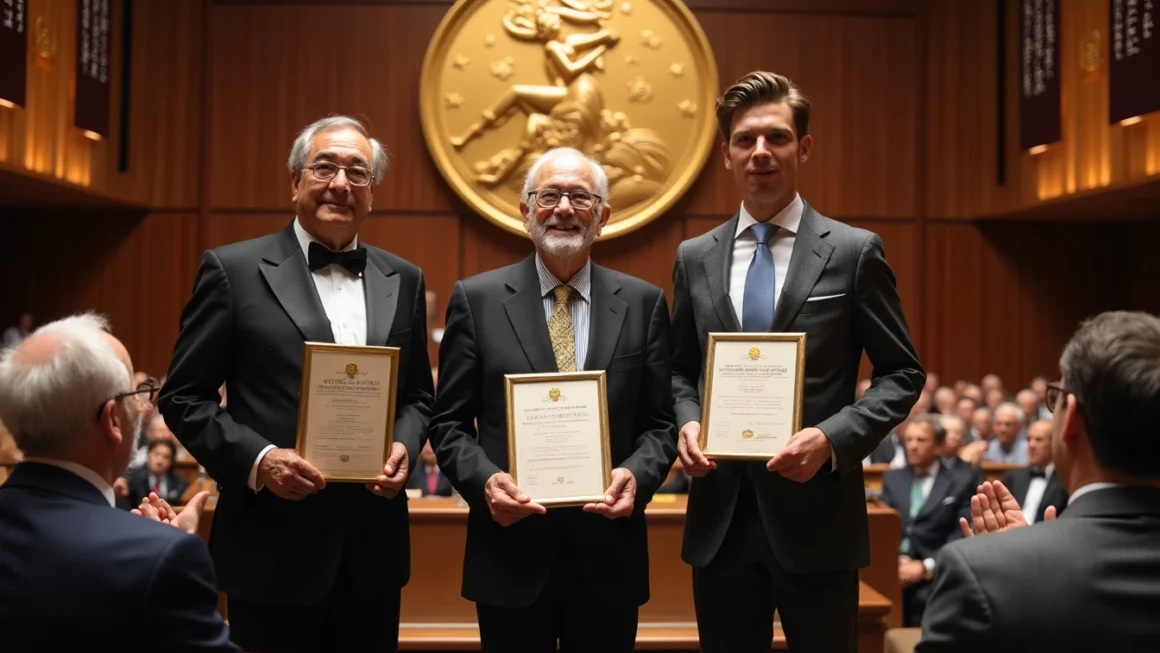The 2024 Nobel Prize in Chemistry: A Leap Forward in Molecular Science
Table of Contents
The announcement of the Nobel Prize in Chemistry is always a momentous occasion in the scientific community. For 2024, the prize has been awarded to an exceptional team whose groundbreaking work in molecular science promises to revolutionize the field.
The Pioneers: Baker, Hassabis, and Jumper
This year’s laureates, Baker, Hassabis, and Jumper, have made significant contributions to our understanding of complex molecular structures. Their work has opened new avenues in the way scientists approach chemistry and related disciplines.
Background and Expertise
David Baker, renowned for his expertise in protein folding, alongside his talented peers, has transformed theoretical knowledge into practical applications. Their collective research has not only gained recognition but has also paved the way for innovations in medicine and biotechnology.
Revolutionizing Molecular Chemistry
Their work focuses on employing advanced computational methods to predict and model the behavior of molecular structures. This approach is particularly important for understanding diseases and developing new drugs.
- Developed cutting-edge algorithms for molecular modeling.
- Enhanced AI techniques to simulate molecular interactions.
- Provided crucial insights into protein folding and stability.
Impact on Science and Medicine
The implications of their pioneering work extend beyond chemistry, significantly impacting fields such as pharmacology and materials science. By deciphering the complexities of molecular interactions, they have provided invaluable tools for drug discovery and design.
Applications in Drug Discovery
Their computational models have accelerated the process of identifying new therapeutic compounds. This has huge potential in tackling challenges in drug development, particularly in targeting previously deemed “undruggable” diseases.
Furthermore, the ability to predict molecular behavior allows for more efficient testing and refinement, reducing the time and cost involved in bringing new treatments to market.
Challenges and Future Directions
Despite their achievements, Baker, Hassabis, and Jumper continue to face challenges. The complexity of accurately modeling molecular dynamics demands continuous refinement of their techniques. Moreover, real-world applications require these models to be adaptable and responsive to changing data and technological advances.
Call to Action for Emerging Scientists
This groundbreaking work speaks volumes about the potential of interdisciplinary approaches in chemistry. Young scientists are encouraged to embrace innovative methodologies and pursue studies that integrate technology and traditional sciences.
To learn more about effective methodologies in scientific research and development, visiting this portfolio website may provide inspiring insights into the digital landscape that supports modern science.
Conclusion
The 2024 Nobel Prize in Chemistry winners, Baker, Hassabis, and Jumper, have not only achieved exceptional scientific breakthroughs but have also set the stage for future innovations. Their work exemplifies the power of collaboration and technology in advancing human understanding of molecular chemistry.
As the world anticipates further developments from their research, the scientific community is eagerly watching for the next leaps in the progressive journey of chemistry.




